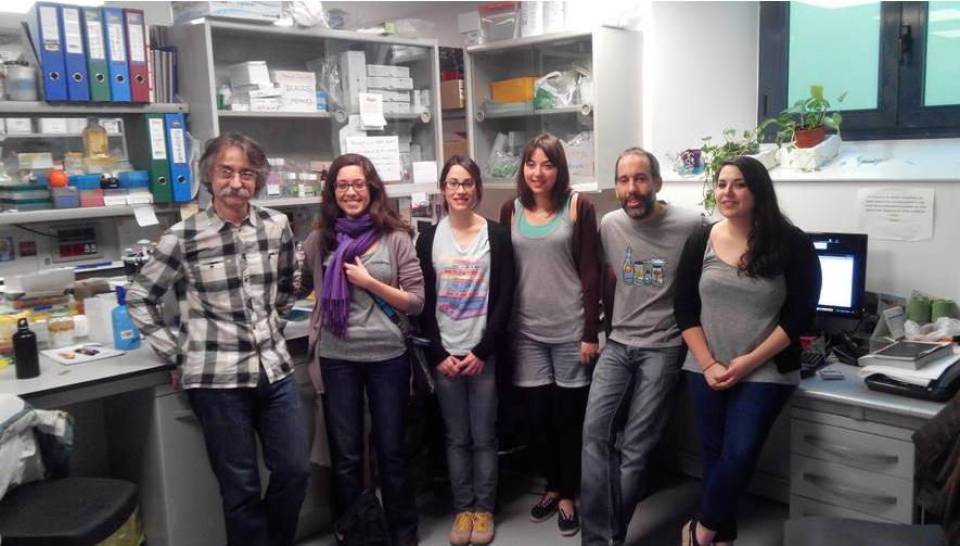Daniel Grinberg and Lluïsa Vilageliu, from the Department of Genetics of the Faculty of Biology, and Joan Blasi, from the Department of Pathology and Experimental Therapy of the Faculty of Medicine, participated in the paper, published on the journal Cell Reports. Researchers from the Garvan Institute of Medical Research, the University of Sidney (Australia), Queensland University of Technology (Brisbane, Australia) and the University of Hamburg (Germany) also collaborated in the study.
The study was developed by means of experiments carried out with cell cultures of patients with Niemann-Pick disease. These people present a genetic anomaly that causes cholesterol accumulation in the cell; that produces different motor and neurological disorders. “It is generally thought that cholesterol, one of the most important lipids in our body, is in the blood; but few people ask themselves what cholesterol does in the cell”, points out Carles Enrich. “Cholesterol —adds the researcher— plays different functions in the cell. Besides being crucial to produce membranes, it also regulates vesicular trafficking. Now, it has been proved that cholesterol plays a key role in the regulation of other mechanisms, for instance cell mobility and propagation and, therefore, it is a crucial factor in metastasis”.
Most cells in our body bind other cells by means of integrins, molecules that act as bridges located at the cell surface. UB researchers explored how integrins move in the cells and discovered cholesterol’s key role. Enrich points out that “in the cell, cholesterol controls the trafficking of vesicles, which are responsible for transporting integrins to cell surface. Cholesterol depletion in the trans-Golgi network interferes integrin trafficking which has direct repercussions on cell migration”.
New knowledge about the mechanisms of cancer metastasis
The study provides new therapeutic options to control metastasis and points out a strategy to be applied to cancer patients who also have cholesterol disorders. “It must be considered that the drugs prescribed to regulate cholesterol may modify cell migration ability. Therefore, progress in personalized therapy is absolutely important”, highlights Enrich.
Now, researchers’ challenge is to understand why cholesterol stays in the cell. “We want to study what endosome membrane mechanisms block intracellular traffic and hold cholesterol and their negative consequences for our health”, concludes Carles Enrich.

